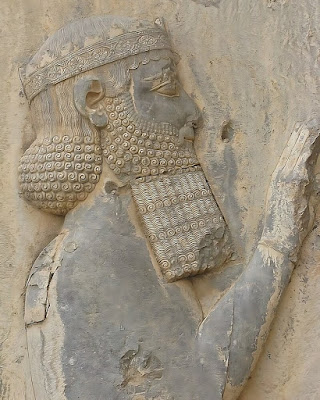“All the presidents of the kingdom, the governors, and the princes, the counsellors, and the captains, have consulted together to establish a royal statute, and to make a firm decree, that whosoever shall ask a petition of any God or man for thirty days, save of thee, O king, he [including Daniel] shall be cast into the den of lions. Now, O king, establish the decree, and sign the writing, that it be not changed, according to the law of the Medes and Persians, which altereth not. Wherefore king Darius signed the writing and the decree.”
– The Hebrew Bible, “The Book of Daniel,” Chapter 6, Verses 7 through 9 (as translated by the King James Version of the Bible) – a notable chapter in the Bible to mention the Persians
There are actually three pre-Islamic empires in Persia, and this film is about two of them
There are actually three pre-Islamic empires in Persia. This film is about two of them. The first episode covers the Achaemenid Empire, and the second episode covers the Sasanian Empire. Thus, they (mostly) skip over the Parthian Empire that was between these two great groups. (More about that empire later.) The first episode is roughly 53 minutes long, while the second episode is roughly 44 minutes long. Thus, this film is a little more than an hour and a half in all. It’s a reasonably good primer on the history of Ancient Persia. But its focus seems to be more archeological than historical. Its focus is on showing ancient ruins and reliefs, and what they tell us about the Ancient Persians. And I’m perfectly okay with this film being so low-budget. They make reasonably good use of maps, reconstructions, and other relevant images. They rely on two talking-head scholars, one of them speaking a language that I presume to be Farsi – the Iranian dialect of modern Persian. The other is an American guy from California, whose name suggests some Iranian ancestry of his own – something that proves to be quite helpful in this context. And the film’s credits show many Iranian names involved in the making of this film. But one feels that the viewer doesn’t get a great understanding of Persia’s military or political history, or even their cultural history. They don’t even really show where these great Persian events took place. It’s just an examination of the artifacts from the time (including their art), and what they tell us about the Ancient Persians themselves.
Darius the Great











